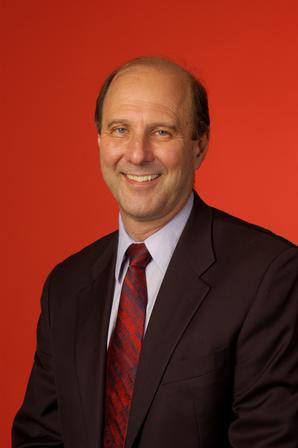
How Hypnotherapy Helps People Heal from Stress, Pain and Trauma
This week, a nationally-renowned expert on hypnotherapy describes how this tool can be used to help people heal from stress or pain. Have you tried it?
You could listen through your local public radio station or get the live stream at 7 am EDT on your computer or smart phone (wunc.org). Here is a link so you can find which stations carry our broadcast. If you can’t listen to the broadcast, you may wish to hear the podcast later. You can subscribe through your favorite podcast provider, download the mp3 using the link at the bottom of the page, or listen to the stream on this post starting on November 4, 2024.
How Could Hypnotherapy Help People Heal?
People who see a healthcare provider for pain, anxiety or insomnia are frequently offered a prescription for a pain reliever or an anti-anxiety drug. While these may work in the short term, they are far from ideal for addressing an ongoing problem. Why not use hypnotherapy, which puts relief right into the patients’ own hands? Evidence shows that this can be very effective.
Research has shown that hypnosis has three components: focusing on a goal, putting everything else outside of the immediate attention, and practicing cognitive flexibility. This allows the person to try on different ways of being to see how that feels. You might believe that you could not be assertive, because you’re just not that kind of person. But during hypnosis, you could practice standing up for yourself and discover it feels good. Perhaps it isn’t quite as hard as you imagined. When setting goals for hypnosis, it is important to focus on what you are for rather than worry about what you are against.
Who Can Benefit from Hypnotherapy?
Anyone who could be hypnotized might potentially benefit from this mode of treatment. Although some people are more hypnotizable than others, most people can enter a trance state and use it to make changes they need in their lives. Dr. Spiegel classifies people into three groups based on ease of hypnosis: poets, who are very easily hypnotized, diplomats, who tend to analyze the experience later, and researchers, who are hard to hypnotize because they tend to keep their attention on the multiple other stimuli in their environs. He has found that transcranial stimulation can temporarily increase hypnotizability and improve the patient’s motivation to change.
Hypnotherapy Against Pain:
The crisis of opioid overdose deaths underscores how many Americans are in pain that has not been adequately treated. Unfortunately, when narcotics have been used for more than a short period of time, the nervous system adapts. The consequence is that when a person stops taking the medicine, they may experience “withdrawal hyperalgesia,” more pain than before. This is an advantage of using hypnotherapy for pain relief instead. It does not result in unpleasant withdrawal symptoms.
Hypnotherapy Helps People with Post-Traumatic Stress Disorder:
Studies suggest that one in four veterans who have seen combat may experience post-traumatic stress. This does not respond well to the usual medications, but hypnotherapy can be very helpful. In addition, veterans are not the only ones to suffer PTSD. This treatment can be useful for those recovering from all sorts of trauma.
Hypnosis for Healing:
The ultimate use of hypnosis is to help us achieve our best selves. The common misconception that you might lose control under hypnosis is exactly backwards. Done properly, hypnotherapy can help us team up our body and mind together to accomplish our aspirations.
We can do that in multiple contexts, potentially reviewing the best aspects of our sexual relationships. There is some discussion of the ability of hypnotherapy to help people overcome pornography addiction near the end of the show, so parents may want to use discretion in listening with children.
Research on Hypnotherapy:
Here are a few of Dr. Spiegel’s papers:
“Hypnosis: The Most Effective Treatment You Have Yet to Prescribe,” American Journal of Medicine, March 2021.
“Hypnotic responsivity and the treatment of flying phobia,” American Journal of Clinical Hypnosis, 2015.
“Hypnosis in Cancer Care,” American Journal of Clinical Hypnosis, July 2017.
“Testing Hypnotizability by Phone: Development and Validation of the Remote Hypnotic Induction Profile (rHIP),” International Journal of Clinical and Experimental Hypnosis, Jan-Mar 2021.
This Week’s Guest:
Dr. David Spiegel is Willson Professor and Associate Chair of Psychiatry & Behavioral Sciences, Director of the Center on Stress and Health, and Medical Director of the Center for Integrative Medicine at Stanford University School of Medicine. Dr. Spiegel has more than 40 years of clinical and research experience studying psycho-oncology, stress and health, pain control, sleep, hypnosis, utilizing neuroimaging and conducting randomized clinical trials. He has published thirteen books, 425 scientific journal articles, and 175 book chapters on hypnosis, psychosocial oncology, stress physiology, trauma, and psychotherapy. He is Past-President of the American College of Psychiatrists, the Society for Clinical and Experimental Hypnosis, and is a member of the National Academy of Medicine. Dr. Spiegel is Co-Founder and Chief Scientific Officer of REVERI, an interactive hypnosis App: https://www.reveri.com/

David Spiegel, MD, Stanford University School of Medicine
Listen to the Podcast:
The podcast of this program will be available Monday, November 4, 2024, after broadcast on Nov. 2. You can stream the show from this site and download the podcast for free.
Download the mp3, or listen to the podcast on Apple Podcasts or Spotify.

